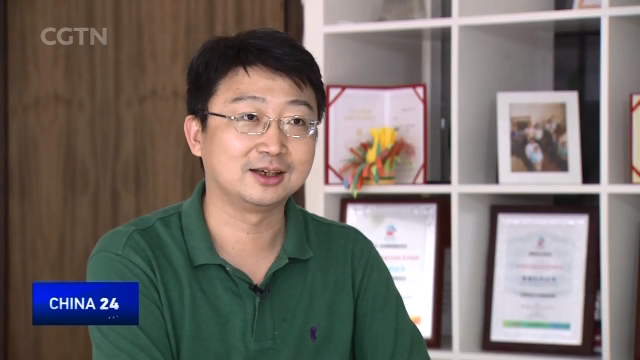
21:06, 22-Jul-2018
'Dying to Survive': Box office hit reflects cancer treatment costs in China
Updated
21:00, 25-Jul-2018
02:35

A black comedy has dominated the Chinese box office for two straight weeks, making it one of the highest-grossing films in Chinese cinema history. "Dying to Survive" is breaking theater records and becoming a focal point of discussion among audiences. Behind its popularity, the financial burden on cancer patients is a real-life experience for many. Rory Coen explains.
One of the summer's movie blockbusters has hit a nerve with the public. It tells the story of a man smuggling cheap drugs for leukemia patients from India to China, because they can't afford patented drugs. It's based on a true story, and rooted in real life. Liu Zhengchen's charity helped arrange interviews with Leukemia patients for the movie.
LIU ZHENGCHEN, FOUNDER & GENERAL SECRETARY NEW SUNSHINE CHARITY FOUNDATION "A patient in Hunan province is a mother of two. She has about 15 thousand dollars in the bank. When she knew about her disease and found out the life-saving drugs cost more than 3 thousand dollars per month, she killed herself to save money for her two kids."
The expensive but life-saving drug for chronic granulocytic Leukemia patients is called Gleevec. Liu Zhengchen is another Leukemia patient who is taking the drug. But he's luckier than most, enjoying free drugs because of his charity work. His wife, also a leukemia patient, is taking another target drug called Tasigna which costs about 700 dollars per month.
LIU ZHENGCHEN, FOUNDER & GENERAL SECRETARY NEW SUNSHINE CHARITY FOUNDATION "it's affordable for some middle and high income city dwellers but still not so much so for most of the low-income rural residents."
Cancer has become China's number one killer. Nearly three million people die of the disease each year. And the population is growing larger, with new diagnoses increasing by 4.3 million each year. High prices of cancer drugs continue to dim hopes of victims getting treatment. So Liu's charity is doing more to raise money to give financial aid to cancer patients. He said the service has become their biggest job. But the hole is growing larger.
LIU ZHENGCHEN, FOUNDER & GENERAL SECRETARY NEW SUNSHINE CHARITY FOUNDATION "In 5 years, we have sent out financial aid worth 20 million dollars, that's a big sum. But compared with national medical insurance, it's not that big of a number."
So he's now striving to put more cancer drugs on the national medical insurance list, which reimburses patients. As mentioned at the end of the movie, Gleevec is now covered by medical insurance in some parts of China; but in others, many patients are still struggling. Rory Coen, CGTN.

SITEMAP
Copyright © 2018 CGTN. Beijing ICP prepared NO.16065310-3
Copyright © 2018 CGTN. Beijing ICP prepared NO.16065310-3